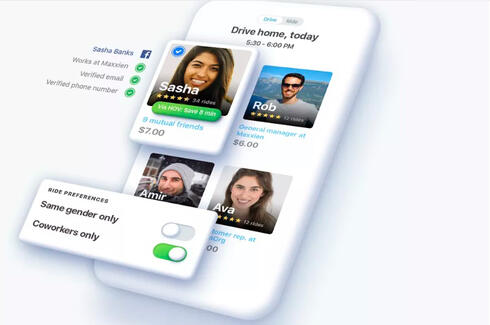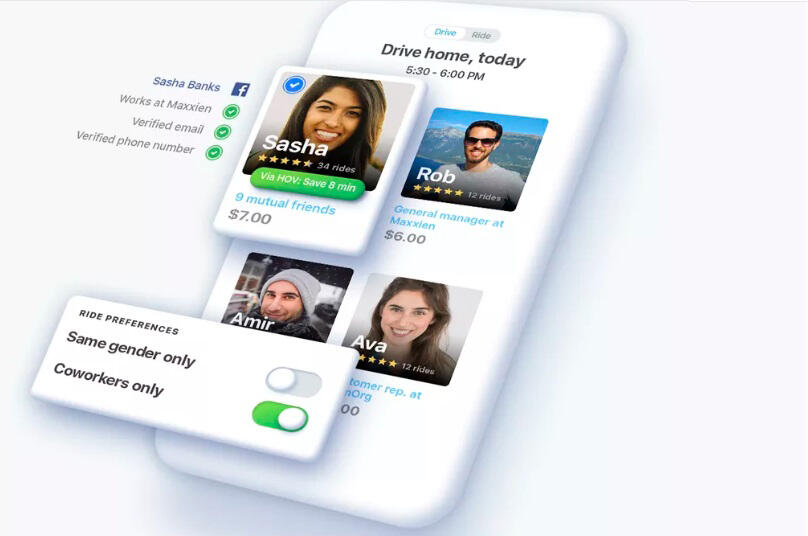
Waze closes carpool service, cites changing driving trends
Five years after its launch, and after hiring dozens of new employees, Waze is shutting down its carpool service. Israel’s Moovit will continue to operate its own version of the service, but will shared carpools continue to ‘reach their destination?’
Not every good idea works in reality: the Israeli navigation application Waze, owned by Google, announced the closure of its ride-sharing service, which allows passengers to join for a low fee drivers traveling to the same destination.
Waze launched the carpool service globally in 2017, and in Israel a year later. However, unlike the Uber and Lyft apps, which offer private rides with a designated driver, Waze’s carpool had difficulty gaining similar success, despite lower fares. This is a global phenomenon, despite the efforts of the regulators to promote such services, in the hope that drivers will agree to leave their car at home and thus help reduce traffic jams and increase the filling of vehicles already on the road.
Waze recruited several dozen workers to support the service, which, unlike Uber and Lyft, was actually approved for use in Israel by the Ministry of Transportation, while limiting paid trips to two per day per driver, and setting a maximum price of two shekels per kilometer. The Minister of Transportation, Merav Michaeli, just recently launched a new lane for public transportation and for carpools of 3 or more on the Ayalon Highway, which joined an existing lane on the road, and on Route 2. However, the almost complete lack of enforcement regarding the number of passengers in a car on these routes did not encourage drivers to pick up passengers to use them, except when it came to the use of the expressway at the entrance to Tel Aviv, where if there are at least 3 passengers in the car, plus the driver your are exempt from payment.
The company refuses to reveal how many passengers took advantage of the carpool service, and how much revenue the drivers received, but since the pandemic began there has been a large drop in demand for it. Unlike aviation and tourism, which in many places returned to pre-pandemic numbers, Waze Carpool did not recover from it, which led to the decision to shut it down.
It should be noted that unlike Waze, Moovit will continue to operate its carpool service.
Waze said: "The company has decided to stop the Waze Carpool service worldwide. The company will focus its resources and efforts on helping cities deal with traffic problems. Recently, we have detected a changing trend in driving patterns on the roads. While Waze was primarily a travel application before the pandemic, today the amount of travel trips and errands has exceeded daily commuter traveling. We are proud of what we have achieved through Waze Carpool, and thank the carpool community for working together to reduce the number of cars on the road."
First published: 16:42, 28.08.22















